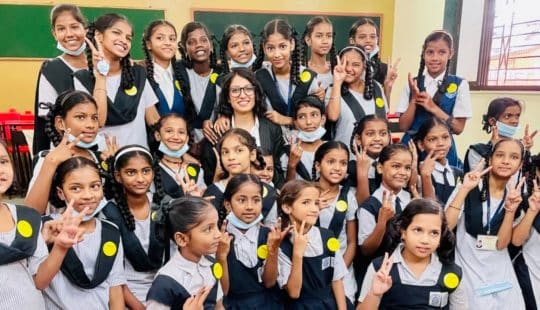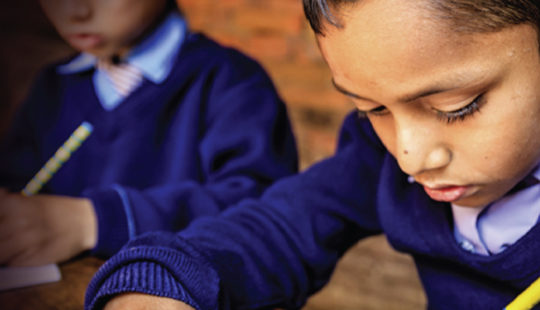Bharatpur in Rajasthan is well known world over for its birding diversity with avian enthusiasts flocking to this district.
This is also the region where global enterprise application software company SAP’s social intervention projects have taken wing successfully and helped meet the unmet needs of the local populace.
SAP’s ambitious programme spanned across over 230 villages using technology to transform an area where water was scarce, classrooms lacked infrastructure, gender discrimination was rampant and jobs were limited. Using IT to bridge the need gaps of the local populace, the programme has so far touched the lives of over 160,000 people.
The company’s interventions in the region that began in 2017 have ranged from education to entrepreneurship, and from healthcare to sanitation. In a short time frame, village classrooms have been equipped with computers, bringing digital literacy to the area, awareness created on sanitation, taps built to provide safe drinking water and local youth skilled to become job ready.
 From education to entrepreneurship, healthcare to sanitation, a series of transformations are taking place using technology as part of the social change project
From education to entrepreneurship, healthcare to sanitation, a series of transformations are taking place using technology as part of the social change project
Through mobile health vans and community health care centres, over 33,000 villagers in and around Bharatpur have received healthcare support. This access to healthcare has reduced maternal mortality in the area discernably.
The social project executed by HOPE Foundation, a long time philanthropy partner of SAP India, is in line with the United Nations Sustainable Development Goals of eradicating poverty, gender inequalities, imparting quality education, good health and well-being, clean water and sanitation, decent work and economic growth.
There were a few specific reasons for choosing Bharatpur district for this large scale intervention. When HOPE Foundation did an assessment of the area in October 2016, it found the development indicators sadly lacking and lots of unmet needs among villagers. Despite a pipeline bringing Chambal water to the region, many of the villages still did not have potable water. High fluoride content in the water had led to a heavy incidence of cancer and other illnesses in the area. Though toilets had been built as part of Swacch Bharat Abhiyan, usage was low due to lack of water. Infrastructure in schools was lacking.
 Social project initiatives in Bharatpur include increasing access to potable water
Social project initiatives in Bharatpur include increasing access to potable water
A lot of those needs have been met. Take the example of the government senior secondary school at Peepla, where there has been a substantial increase in the school’s strength. Thanks to new toilets, a computer lab, bright paintings on the lab, good drinking water facilities, more children have started enrolling in the school. Encouragingly, over 65 per cent of the students are girls.
On the economic front, SAP’s focus in the region has been on youth skilling, empowering women and promoting social entrepreneurship. There are computer training centers in schools, and specific skill training workshops in travel and hospitality at a local academy aimed at youth. In addition women have been taught jewellery making. Above all, everyone has been empowered with digital skills so that they can find employment and market connect. When last mapped, of the 905 youth trained, 213 had found jobs. Several women had become self sufficient, earning Rs 4000-Rs6000 per month doing entrepreneurship from home.
Powered by technology and talent, SAP’s project has given wings to the dreams of Bharatpur’s people. The aim is to replicate the story in many other districts.



